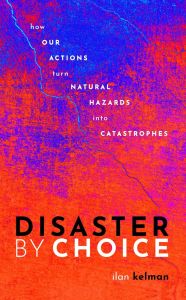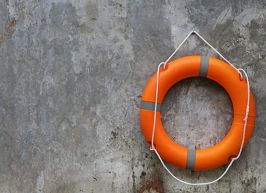Melden Sie sich bei getAbstract an, um die Zusammenfassung zu erhalten.

Melden Sie sich bei getAbstract an, um die Zusammenfassung zu erhalten.
Ilan Kelman
Disaster by Choice
How Our Actions Turn Natural Hazards into Catastrophes
Oxford UP, 2020
Was ist drin?
Natural disasters do not exist, only those made by man.
Recommendation
Ilan Kelman dives into the causes of disasters and the economic, cultural and psychological reasons individuals and societies let them happen. He insists that natural disasters do not exist. Kelman views the loss of life, livelihood and property that accompanies wildfires, earthquakes and hurricanes as measures of society’s vulnerabilities and of whether societies choose to eliminate or accept them.
Summary
About the Author
Professor Ilan Kelman teaches disasters and health at University College London and the University of Agder in Norway.






















Comment on this summary